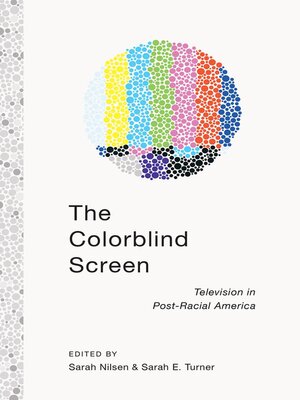
Sign up to save your library
With an OverDrive account, you can save your favorite libraries for at-a-glance information about availability. Find out more about OverDrive accounts.
Find this title in Libby, the library reading app by OverDrive.



Search for a digital library with this title
Title found at these libraries:
| Library Name | Distance |
|---|---|
| Loading... |
The election of President Barack Obama signaled for many the
realization of a post-racial America, a nation in which racism was no longer a
defining social, cultural, and political issue. While many Americans espouse a
"colorblind" racial ideology and publicly endorse the broad goals of
integration and equal treatment without regard to race, in actuality this
attitude serves to reify and legitimize racism and protects racial privileges
by denying and minimizing the effects of systematic and institutionalized
racism.
In The Colorblind Screen, the contributors examine
television's role as the major discursive medium in the articulation and
contestation of racialized identities in the United States. While the dominant
mode of televisual racialization has shifted to a "colorblind" ideology that
foregrounds racial differences in order to celebrate multicultural
assimilation, the volume investigates how this practice denies the significant
social, economic, and political realities and inequalities that continue to
define race relations today. Focusing on such iconic figures as President
Obama, LeBron James, and Oprah Winfrey, many chapters examine the ways in which
race is read by television audiences and fans. Other essays focus on how visual
constructions of race in dramas like 24, Sleeper Cell, and The Wanted
continue to conflate Arab and Muslim identities in post-9/11 television. The
volume offers an important intervention in the study of the televisual
representation of race, engaging with multiple aspects of the mythologies
developing around notions of a "post-racial" America and the duplicitous
discursive rationale offered by the ideology of colorblindness.







